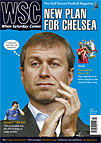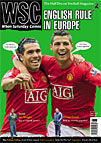 The complaints of the traditional media that the internet has lower standards is turning out to be a self-fulfilling prophecy, Ian Plenderleith discovers, as major organisations sully their brands
The complaints of the traditional media that the internet has lower standards is turning out to be a self-fulfilling prophecy, Ian Plenderleith discovers, as major organisations sully their brands
It’s well documented that the traditional print media were suspicious of this whole internet thing for years. Despite the worry that sub-standard but low-cost online journalism was going to take away all their readers, they were slow to respond to the ink-free new world, as though by competing they would taint themselves with product deemed to be a mediocre shadow of the revered printed word.
